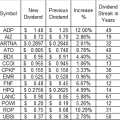Good morning and welcome back to Energy Source, coming to you from New York, where fears of a US recession prompted a sharp sell-off in stocks and other risky assets.
Commodity markets have not escaped the turmoil as investors fret that demand for oil, gas and metals critical to the energy transition will fall if the US economy falters.
Oil prices are hovering close to six-month lows and traders say they would have fallen further if it were not for fears that rising tensions in the Middle East could interrupt supplies. You can read more here and here.
Elsewhere, my Energy Source colleague Malcolm Moore and I have published a deep dive on the bitter dispute between the oil and gas industry and the International Energy Agency over the future of fossil fuels.
Fatih Birol, the 66-year-old head of the IEA, has asked Big Oil to “look at their business plans” given the urgent need to slash carbon emissions and tackle global warming. The industry has responded by accusing the agency of playing climate politics and publishing biased research.
The squabble has captured the attention of senior Republican politicians in the US and former officials in Donald Trump’s administration, who are threatening to oust Birol and stop funding the IEA.
Our main item today takes us to Australia, where Macquarie, the Sydney-based asset manager, is facing questions from investors over its green credentials, as it continues to profit from oil and gas.
Thanks for reading, and drop me a line at jamie.smyth@ft.com.
Macquarie’s energy goals clash at AGM
Macquarie, the Sydney-based asset manager and bank, has been one of the biggest beneficiaries of volatility in the global energy markets. Price swings and uncertainty generated by Russia’s full-scale invasion of Ukraine and extreme weather conditions produced outsized profits for its commodities trading business and similarly huge bonuses for its executives.
Energy has remained a central topic within the company’s more traditional asset management and investment banking arms given its bets on long-term cyclical trends around the energy transition. Macquarie, which bought the UK’s Green Investment Bank in 2017, has invested in renewable projects including sustainable aviation fuel and green hydrogen generation.
In the company’s market update last month, which coincided with its annual shareholder meeting, Macquarie pushed back the potential sale of various assets in renewable energy to the second half of the year. But it stuck to its guns on the opportunity that the energy transition presents investors and others looking to finance major projects.
Glenn Stevens, chair of Macquarie and a former Reserve Bank of Australia governor, told shareholders that the investor had 110 gigawatts of clean energy infrastructure at various stages of development, more than double that of the overall Australian market.
“The transition that is in progress to shift from hydrocarbon fuels to non-carbon fuels is easily the biggest re-engineering of the modern economy that we live in since the industrial revolution. It is a huge undertaking. It will take many years. It will take a tremendous amount of investment and a lot of capital is going to need to be committed to it,” he said.
Yet Macquarie, like many companies providing finance in the energy sector, is caught between a rock and a hard place. It is championing the renewables revolution, despite growing questions over whether its ambitious climate targets can be achieved. But it has yet to completely abandon its support for the oil and gas sector, which has attracted the brickbats of climate groups.
One shareholder at the annual meeting was quick to ask why Macquarie was still investing in new fossil fuel projects. The asset in question was Empire Energy, which is well advanced with a plan to start fracking in the remote Beetaloo Basin in Australia’s vast Northern Territory. Macquarie owns a 2.6 per cent stake in the business, whose chief executive Alex Underwood is a former director of Macquarie’s energy markets division.
The temptation may have been to shrug off the question but Stevens hit back and said it was important that institutions such as Macquarie continue to support oil and gas companies to help them decarbonise on the journey towards net zero. “There will be many twists and turns on this journey. Our view also is that some of the carbon-based fuels, particularly gas, are going to remain a part of the energy mix for quite some time as a transition fuel. It is unrealistic actually to think otherwise,” he said pointedly.
Underwood told Energy Source that Macquarie’s support had been “fantastic” as his company pushes on towards producing gas in the Beetaloo Basin within the next 12 months. He cited a recent strategy statement from the Australian government that gas would continue to play a part in the country’s energy system, and that of its Asian neighbours, as providing support for Macquarie’s position.
Back at the AGM, another Macquarie investor, sitting behind Energy Source, greeted a second question on Empire with a sigh and turned to the person next to him and said under his breath, “drill, baby, drill”. (Nic Fildes)
Power Points
Energy Source is written and edited by Jamie Smyth, Myles McCormick, Amanda Chu, Tom Wilson and Malcolm Moore, with support from the FT’s global team of reporters. Reach us at energy.source@ft.com and follow us on X at @FTEnergy. Catch up on past editions of the newsletter here.
Recommended newsletters for you
Moral Money — Our unmissable newsletter on socially responsible business, sustainable finance and more. Sign up here
The Climate Graphic: Explained — Understanding the most important climate data of the week. Sign up here



